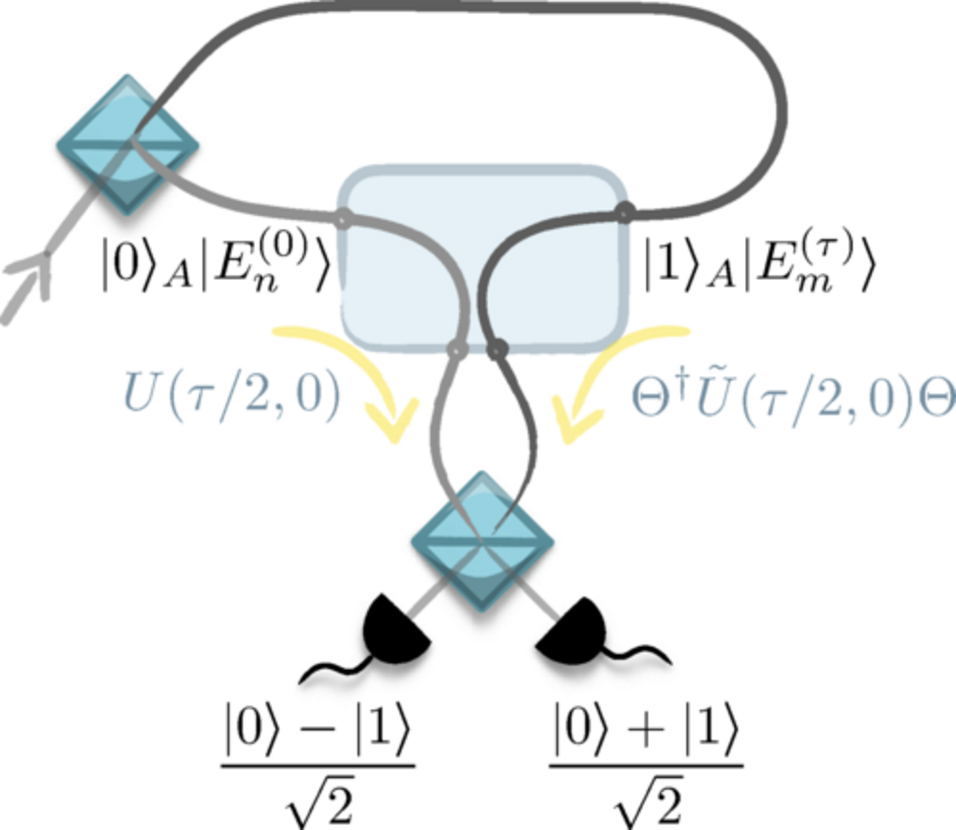The study of thermodynamic fluctuations allows one to relate the free energy difference between two equilibrium states with the work done on a system through processes far from equilibrium. This finding plays a crucial role in the quantum regime, where the definition of work becomes nontrivial. Based on these relations, here we develop a simple interferometric method allowing a direct estimation of the work distribution and the average dissipative work during a driven thermodynamic process by superposing the forward and time-reversal evolutions of the process. We show that our scheme provides useful upper bounds on the average dissipative work even without full control over the thermodynamic process, and we propose methodological variations depending on the possible experimental limitations encountered. Finally, we exemplify its applicability by an experimental proposal for implementing our method on a quantum photonics system, on which the thermodynamic process is performed through polarization rotations induced by liquid crystals acting in a discrete temporal regime.

